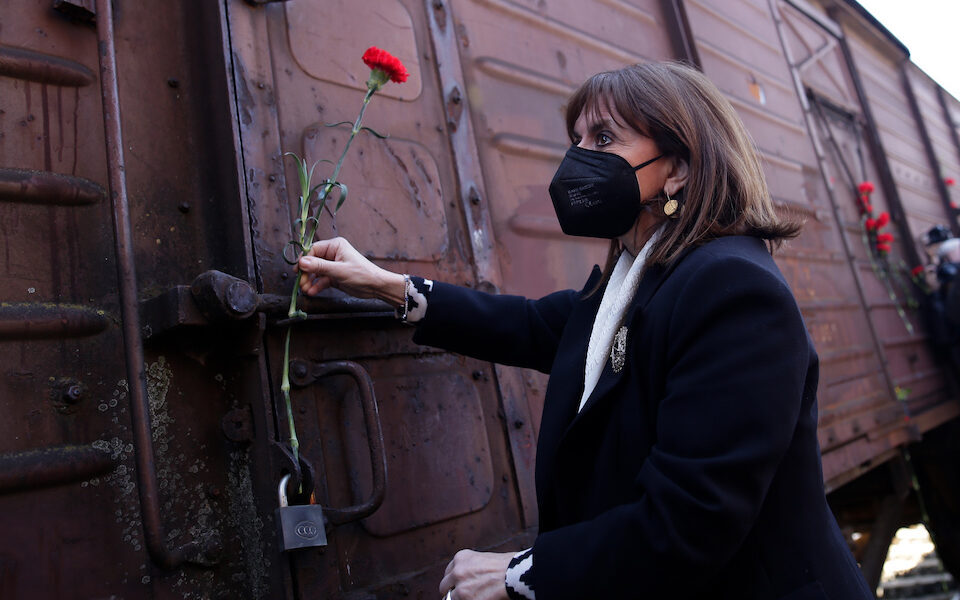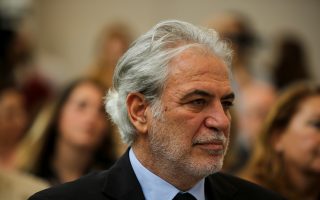Officials commemorate the Holocaust in Thessaloniki

Officials, including President Katerina Sakellaropoulou, European Commission Vice-President Margaritis Schinas and Israeli Ambassador Yossi Amrani, participated in a march commemorating the victims of the Holocaust in Thessaloniki on Sunday.
“It is only if we transmit the historical knowledge to the next generation, if we preserve the memory, if we all have the empathy feel the pain and the anguish of the victims as it were our own, if we understand that the Holocaust is part of an international historical heritage, that can we arm ourselves against the march of evil,” said Sakellaropoulou.
“It is unacceptable to call Nazis those who are defending the independence of their homeland,” said Schinas in a statement uploaded to social media, alluding to the Russian invasion of Ukraine that is being conducted on the pretense of “denazification.”
Ambassador Amrani remarked: “Our march here today bears special significance, for the marchers and for the many who are not here today. I appreciate each and everyone present here today, raising a voice, making a statement of remembrance and reminding. Human society, our civilization can’t accept forgetfulness or complacency of memory…We may vow Never Again but words are not enough, our own personal commitment and daily conduct are challenged. These days, as we witness the tragic events in Ukraine unfolding, as once again human lives are sacrificed at the altar of politics and vanity, as rhetoric is running high we should not satisfy ourselves with words, evoking Shoah terminology. The Holocaust is unique in history, world history for the ideology behind it. The Holocaust, different than any atrocity or genocide, stands on its own, the attempt to eliminate a people, to exterminate it only for the reason of racism. The historic lesson of the Holocaust is one of responsibility, individual and collective, within our states and country, to stand by the victim, the weak, the refugee.”
The memorial march was titled “Never again, Thessaloniki -Auschwitz – 79 years since the departure of the first train.”
The Jewish community of Thessaloniki, with roots since the 15th century, when many fleeing persecution from Spain settled there, was decimated by the Nazis. Of the community’s nearly 50,000 people, almost 45,000 were deported to the extermination camp complex of Auschwitz-Birkenau in occupied Poland, where only a handful survived. According to the US Holocaust Memorial Museum, some 500 Jews fled to the mountains, where they joined the Greek Resistance to the occupiersand a few escaped to Palestine. “Jews holding identity papers or visas issued by neutral governments were not deported. More than 300 Jews with Spanish papers were transferred to Spain via the Bergen-Belsen camp in northern Germany,” the museum’s web page mentions.
Postwar, the Jewish community in Thessaloniki numbered fewer than 2,000 people. A number of others settled in Israel.





